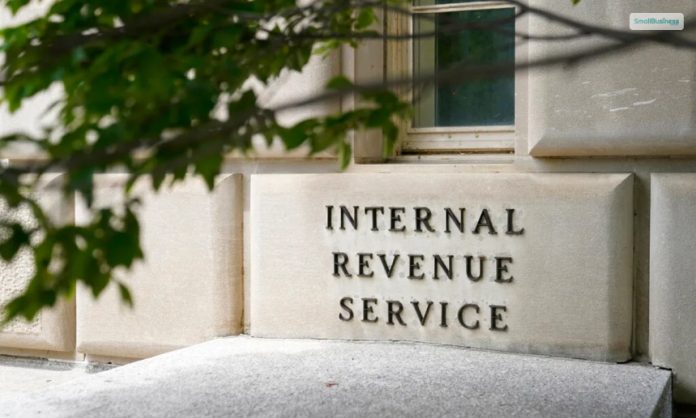What is the IRS? – The IRS, or the Internal Revenue Service of the United States, is a government agency that collects taxes and enforces tax laws in the country. The purpose of the agency is to collect employment taxes as well as individual taxes. As the body enforces tax laws in the United States, they play the most important role in tax regulation in the country.
In this article, you will learn some general details about the United States Internal Revenue Service. We will also give you details about how the IRS works and what does the IRS do. Next up, we will share information on the IRS’s auditing system with you. Finally, you will learn about how to file your taxes with the Internal Revenue Service. Hence, to learn more, read on through to the end of the article.
What Is The IRS (Internal Revenue Service)? – IRS Definition

According to Investopedia,
“The Internal Revenue Service (IRS) is a government agency that administers tax laws and collects federal taxes from U.S. individual and corporate taxpayers. The IRS is a division of the U.S. Treasury Department and ensures that the responsibilities of the Treasury secretary are followed through under the Internal Revenue Code (IRC).”
Established in 1862, the IRS agency is also responsible for handling excise, gift, and estate taxes. The agency also performs audits to find out any discrepancies in tax returns and find out whether taxpayers are complying with tax laws or not.
The Internal Revenue Service was established in 1962 by President Lincoln and Congress as they created a new office for the Commissioner of Internal Revenue. Although the law was temporary, it gave the new office the right to levy taxes on commonly consumed and traded goods. This tax got a new name: excise tax. From then on, the office has the responsibility and the means to collect these taxes.
What Are The Major Functions Of The IRS?

The IRS collects and processes annual tax returns from tax filers. The agency’s goal is to help taxpayers understand the tax law better, especially the ones associated with gifts, estates, and excise taxes. They process federal tax returns and collect revenues from individual taxpayers and corporations. If somehow a taxpayer owes money or has paid more money than required, then the IRS issues tax refunds.
Basically, the IRS operates through the budget that the US Congress approves. The budget includes an allotment of money into four different accounts. These are:
- Taxpayer Services
- Enforcement
- Operations Support
- Business Systems Modernization
Here, once you allocate money into one account, you cannot reallocate that money into another. For the fiscal year 2023, the IRS requested the US Congress of a budget of $14.1 billion. The agency also requested Congress to change the structure of allocation so that they can move the money when there is a need to support costs in other sections.
How Does IRS Auditing Work?

According to the official website of the IRS,
“The IRS manages audits either by mail or through an in-person interview to review your records. The interview may be at an IRS office (office audit) or at the taxpayer’s home, place of business, or accountant’s office (field audit). Remember, you will be contacted initially by mail. The IRS will provide all contact information and instructions in the letter you will receive.”
You will need to understand here that even if the IRS selects someone for an audit, it does not mean that there is a problem with taxes. The IRS basically uses two methods to select a person for audit:
Random Selection
Whether someone has done tax returns or not is selected on the basis of a statistical formula by the Internal Revenue Service. The IRS here compares a person’s tax return against the norms for similar returns. These norms are developed with the help of prior audits of a statistically valid random sample of returns. To understand how this system works, you can check the IRS website.
Related Examination
If your returns are somehow involved with issues and transactions of other taxpayers, then your returns might get selected. That is, if someone’s (investor or business partner) returns were selected for audit using the first method, then only it is applicable.
You will get a notification by mail if the IRS selects your account for audit. With the help of the mail, the IRS can further request you to provide additional information about certain items for which you made tax returns. It might include income, expenses, or any other itemized deductions.
Filing Your Taxes With The IRS – How To Perform?
According to Investopedia,
“The majority of individual taxpayers use Form 1040: U.S. Individual Tax Return Definition, Types, and Use to file their taxes and those who are 65 and older may use Form 1040-SR: Tax Return for Seniors. These forms are used to report income and determine whether any additional taxes are owed or if a refund is due to the taxpayer.”
Individual taxpayers need to fill out the 1040 form. On the other hand, for corporations, Form 1120 is applicable for tax returns. In other cases, for individual taxpayers, it is also necessary to complete and attach additional forms to the main filing, such as W2 forms or 1099 forms.
If a taxpayer wants to file taxes electronically with the help of special tax software, the IRS has the option as well. The IRS actually recommends using the software since it is easier and faster. You can transfer funds from your bank accounts, or you can use your credit/debit card to make the payment.
Bottom Line
Hope this article was helpful for you in giving information about what is the IRS. It is a federal body in the United States that is responsible for collecting individual and employment taxes. The body is also the enforcer of tax laws in the country.
Most of the work that the Internal Revenue Service does involves auditing taxpayers or finding irregularities in tax returns. Hence, it is important to file taxes with the IRS properly. Do you have any recommendations about how to file taxes in a better way? Share your views with us in the comments section below.
Continue Reading:




